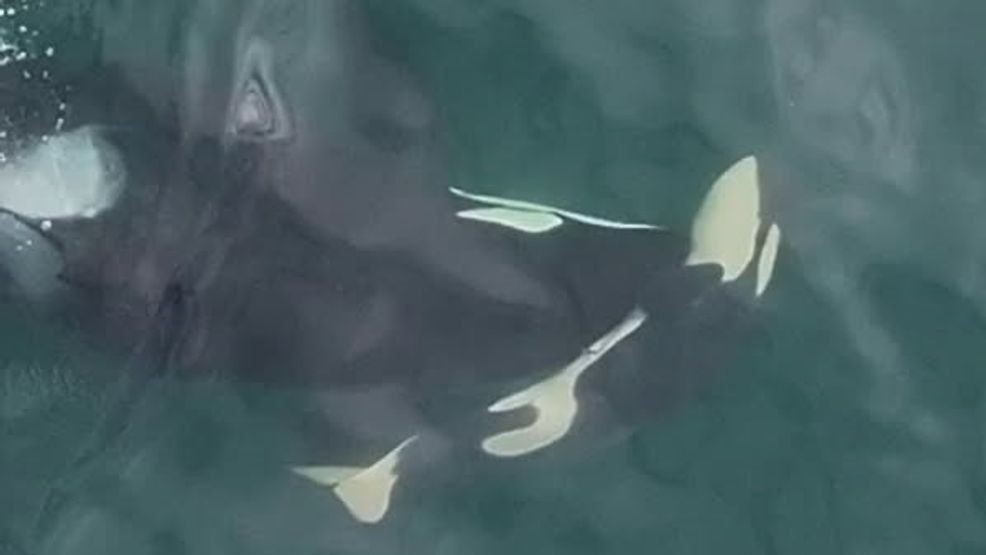SEATTLE, Wash. — A mother orca belonging to the J pod of Southern Residents has been spotted carrying her deceased baby in the waters of Rosario Strait, the Center for Whale Research confirmed.
The orca, known as J36, was first spotted with her deceased calf on Friday morning, pushing its body along in front of her as she swam.
RELATED | Southern Resident whale continues to carry her dead calf, highlighting orca grief process
The Center for Whale Research stated that the calf was full-term or near full-term, but it remains unclear whether it was a stillbirth or if the calf died shortly after birth. J36 “was pushing a deceased female neonate, with umbilical cord still attached,” their press release noted, and researchers estimated the calf was born and had died within the last 3 days.
Another J pod orca, J35 Tahlequah, previously garnered national attention after she was seen carrying her dead calf for 17 days in 2018, pushing its body for over 1,000 miles through Pacific Northwest waters. J35 lost another calf in 2025 and repeated the process, carrying the body for over 10 days.
Researchers believe this behavior is a sign of grief.
“The parts of their brains that are responsible for things like memory, emotions, and language are very well developed, in fact, in some ways more developed than the human brain,” said researchers from Wild Orca.
RELATED | Tahlequah mourns loss of another calf as Center for Whale Research confirms death of J61
The southern resident orcas are beloved yet endangered, with fewer than 75 individuals remaining and female orcas in the population suffering a high rate of pregnancy loss. “69.8% of the females in this population who are getting pregnant aren’t able to carry their calf to term, so they’re spontaneously miscarrying their calves or their calves are born and die right away,” Wild Orca said.
These orcas are known for the strong bond they create with their calves. “I wouldn’t be surprised if the grieving process doesn’t last a lifetime like it does with humans when a baby is lost,” the researchers added.
The Southern residents are threatened by a decreasing food supply, pollution, and disturbances to their environment, although activists, researchers, and the Washington community have worked together to try to help them.
In December 2024, Washington passed a law stating that boaters must stay 1,000 yards away from Southern Resident pods, while various research groups have utilized state-of-the-art technology to monitor the whales and try to find solutions.
